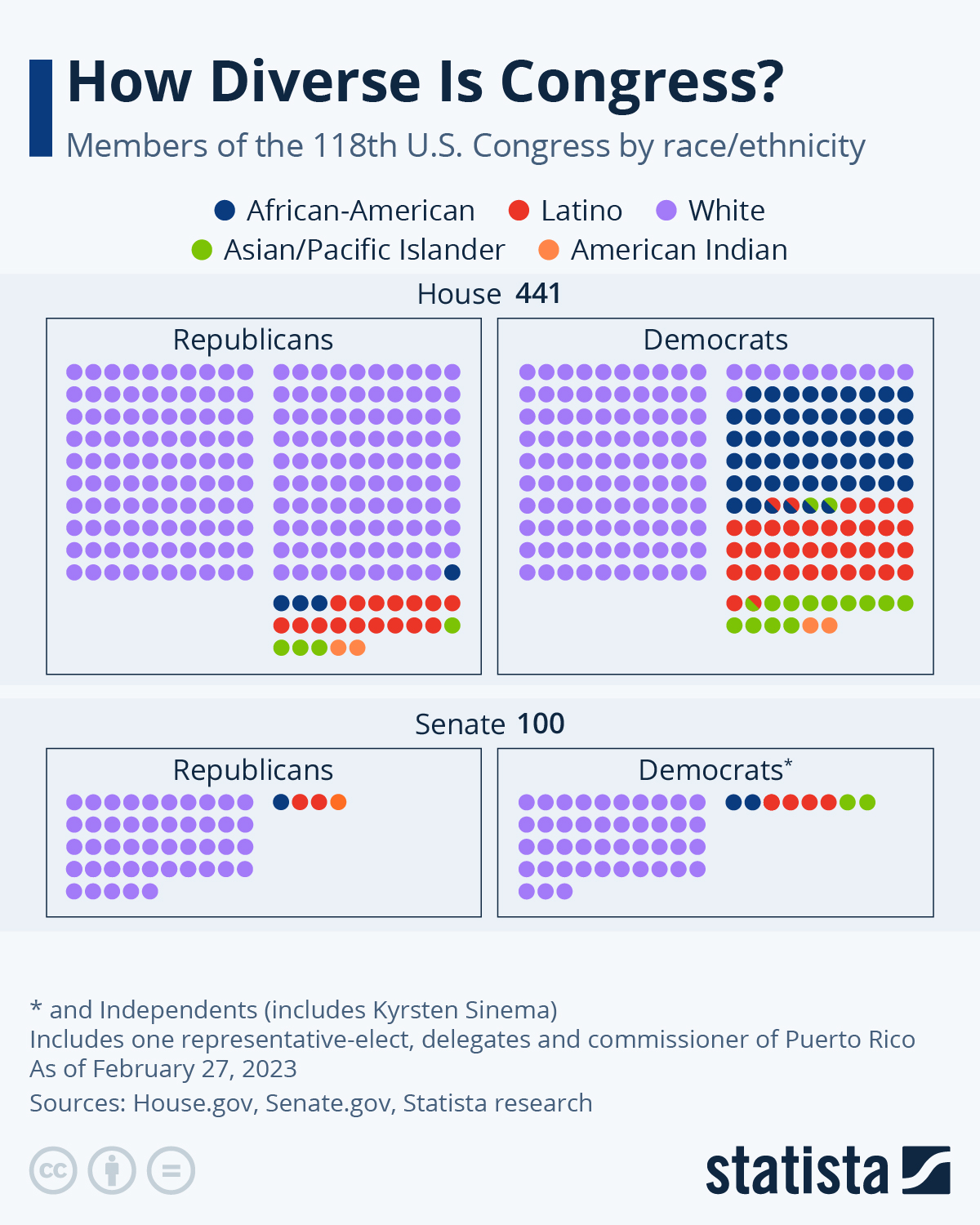
 You will find more infographics at Statista
You will find more infographics at Statista
The right of citizens of the United States to vote shall not be denied or abridged by the United States or by any State on account of race, color, or previous condition of servitude.
The right of citizens of the United States to vote shall not be denied or abridged by the United States or by any State on account of sex.
The right of citizens of the United States to vote in any primary or other election for President or Vice President, for electors for President or Vice President, or for Senator or Representative in Congress, shall not be denied or abridged by the United States or any State by reason of failure to pay any poll tax or other tax.
The right of citizens of the United States, who are eighteen years of age or older, to vote shall not be denied or abridged by the United States or by any State on account of age.
Legislation signed by President Lyndon B. Johnson intended to thwart state and local attempts to restrict Black Americans from voting with facially neutral voting restrictions that ultimately had a disparate impact on racial minorities.
Section 4 of the Voting Rights Act subjected the voting regulations of certain jurisdictions with a history of racial animus to heightened scrutiny.
The Supreme Court declared the test by which a jurisdiction was determined be in need of heightened scrutiny unconstitutional.
A recent Supreme Court case to determine whether Alabama violated Section 2 of the Voting Rights Act, which bans racial discrimination in voting policies, by creating a new redistricting plan that placed the majority of Black voters in one district. Alabama has seven congressional seats with one in four voters being black.
The district court agreed with the challengers that the new map was likely a violation and issued a preliminary injunction. Alabama filed an emergency appeal with the Supreme Court who agreed to hear the case and stayed the lower court's order in a 5-4 decision.
On June 8, 2023, the Supreme Court voted 5-4 in Allen to uphold Section 2 and reaffirm the Court's decision in Thornburg v. Gingles, 478 U.S. 30 (1986). Thornburg established a three-part test to determine whether claims violate Section 2 of the VRA. The Court found that Alabama's map did in fact violate Section 2 and Justice Roberts, writing for the Court, rejected many of Alabama's arguments that attempted "to remake our §2 jurisprudence anew." Justice Kavanaugh authored a concurring opinion in part.